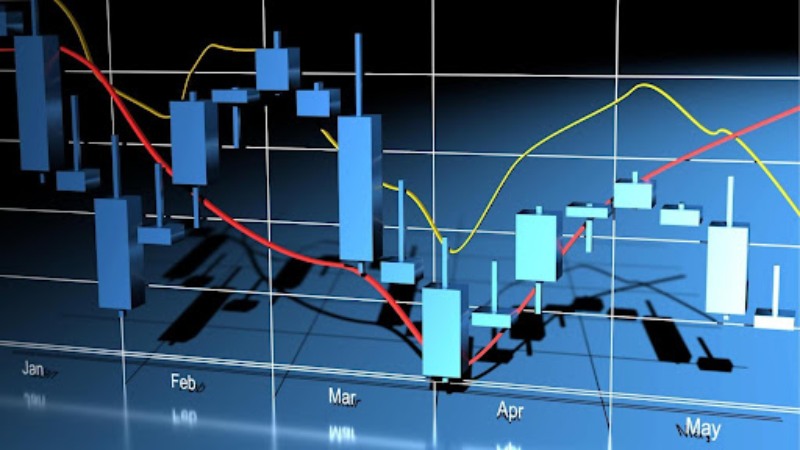You might be just another person who has heard this popular quote: “Don’t try to get rich quick in the financial market.” This quote is true in most cases, mostly because even if you manage to get rich quick, you have gambled one way or the other.
The word “trading”, as seen by some, is more tipped towards the “gambling” side of things rather than “trading”.
Most people lose their money, and some people even compare the financial market’s spread with a casino’s house edge. Not to mention that some traders actually manage to make big money.
But is it possible to get high returns on a consistent basis? Because consistency, after all, is what separates trading from gambling.
The answer is yes. Unlike in gambling, your skill is what decides your consistency and, therefore, your edge. If you are good at trading, it is possible to get a high return on your investment. You need to have a clear understanding of price movements and the reasons for those movements. It takes time, patience, and confusion to gain a great understanding and develop a monk-like discipline while making your trades, which are key to making it big.
Big money is made, but by a select few:
Dan Zanger: In order to have the money to participate in the market, he sold his Porsche for about $11,000. Using the skills he’d developed through two decades of market-playing and William J. O’Neil’s writings, he turned the $11,000 into $18 million over the course of the following year. Dan was able to quit contracting thanks to his success and pursue trading full-time. He made 29000% on his investment. He holds the world record for highest Return on Investment.
Carlos Ariel Then: Made a 21000% return on investment through trading options. The investor and businessman, was capable of taking advantage of what is often called a “lotto play” which was a .45 option on Wayfair that he sold for 95.50 per contract. He’s now reportedly working on an option trading book called “What Are My Options?”.
Takeshi Kothegawa: Referred to as the “bedroom trader,” transformed his $13,000 into $153,000,000 in just 8 years. Nobody knows his actual strategy, but according to rumors, Takashi Kothegawa uses indicators including Bollinger Bands, Relative Strength Index (RSI), volume ratio, and the 25-day EMA for decision-making in his trading, which some people refer to as “divergence trading strategy .”
OK, so you have seen a few people who have achieved great results. But can you say that they are nothing different, and you can get similar results?
In the rest of the article, we will try to find that out. We will explore in detail what exactly determines your potential return on investment. We will also have a look at different aspects of trading and those that hold back other traders from achieving their maximum returns. Most importantly, we will identify the mistakes that are common to most traders and how to avoid them.
The truth about trading
The aim of trading is not to profit from occasional fluctuations in the market; it is to make money when there is no apparent reason for doing so. And to achieve that, we need to be able to predict market movements.
This is achieved by taking advantage of the free market and exploiting its inherent imperfections. These inefficiencies can be found in all aspects of supply and demand, and even in the sentiments of people when buying or selling shares.
A trader might invent a simple trading strategy that is based on a combination of only 2 technical indicators, and then he/she needs to choose the best time to enter and when to exit the trade. If we look at some of the best traders of all time, they have found very simple ways to profit in the market. In fact, these methods are so simple that you can even do them yourself if you have a few hours a day to devote to trading. It takes no more than a few decades.
Sometimes you can even get lucky and find profitable trade opportunities without any technique or tools. The simple truth is that it is not necessary for someone to be an expert in every aspect or tool available in trading. It is not necessary to have a master’s degree in mathematics in order to trade profitably. The truth of the matter is that it’s not even enough to be an expert on one or two particular methods or strategies.
If trading were easy, everyone would be doing it. If trading were easy, every trader would be making money, and there would be no losers. However, as we all know, this is far from reality.
To start making real money in the market, you don’t need a lot of investment capital; you just need a good understanding of how the market works and how to position yourself to benefit from certain types of mistakes other people make when trading.
How much ROI is possible?
Well, we can go on till infinity. It’s your level of understanding of the market that decides how negative or positive your portfolio can be. You can always find some way to make money, but it simply comes down to how much you are willing to risk and the level of your knowledge.
“But how can I trade profitably with my small investment?” is a common question people ask once they start trading. The fact is that you don’t need a large sum of money to start your journey towards trading. In fact, when you start your journey as a novice trader, you will be considered “prey” by other sharks and the market. When you are able to predict market movements better than other traders, it is easy to make money from others’ mistakes.
Don’t get inspired just yet by Carlos Then‘s ROI of 21000% or Takeshi Kothegawa turning $13,000 into $153 million. It sounds bizarre but they are no superheroes. They are not lucky or possess supernatural abilities. They simply have knowledge and experience far beyond those of most other traders, even the veterans. For that, you need to sacrifice the most important asset; time. And even then, most traders fail.
You need to keep learning with time. Keep trading, know how much you know, and do not risk more than your knowledge or what you are sure or comfortable with; that’s the only way to beat the market, if that were possible. Aim for a 150% ROI this year, I’d say good luck… but that’s not what you should rely on. Be consistent!
Topics #trading










